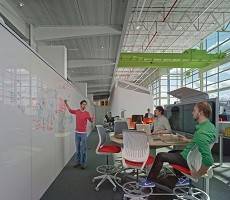November 5, 2014
Failure to adopt strategic facilities management costs UK £1bn annually
 A new report from the Royal Institution of Chartered Surveyors (RICS) claims that over a quarter of UK organisations are failing to adopt a strategic approach to facilities management. For those firms without this approach, the annual average cost is calculated by the report’s authors as £120,000, suggesting a total cost to the economy of nearly £1 billion. The claim is based on a study of around 700 organisations in both the public and private sector and across a range of organisational types and sizes. Around half of those with a ‘dedicated FM programme’ said that doing so had saved their organisation money, 59 per cent reported an increase in productivity, a fifth (21 percent)reported a drop in absenteeism and nearly half (49 percent) claimed it had made them more attractive to customers. The best results were recorded in the public sector with 70 per cent saying strategic facilities management had increased productivity and 71 percent claiming they had seen an increase in employee engagement.
A new report from the Royal Institution of Chartered Surveyors (RICS) claims that over a quarter of UK organisations are failing to adopt a strategic approach to facilities management. For those firms without this approach, the annual average cost is calculated by the report’s authors as £120,000, suggesting a total cost to the economy of nearly £1 billion. The claim is based on a study of around 700 organisations in both the public and private sector and across a range of organisational types and sizes. Around half of those with a ‘dedicated FM programme’ said that doing so had saved their organisation money, 59 per cent reported an increase in productivity, a fifth (21 percent)reported a drop in absenteeism and nearly half (49 percent) claimed it had made them more attractive to customers. The best results were recorded in the public sector with 70 per cent saying strategic facilities management had increased productivity and 71 percent claiming they had seen an increase in employee engagement.























October 29, 2014
The business case for green building widens to cover wellness and productivity
by Alison Kitchingman • Comment, Environment, Facilities management, Workplace design
(more…)